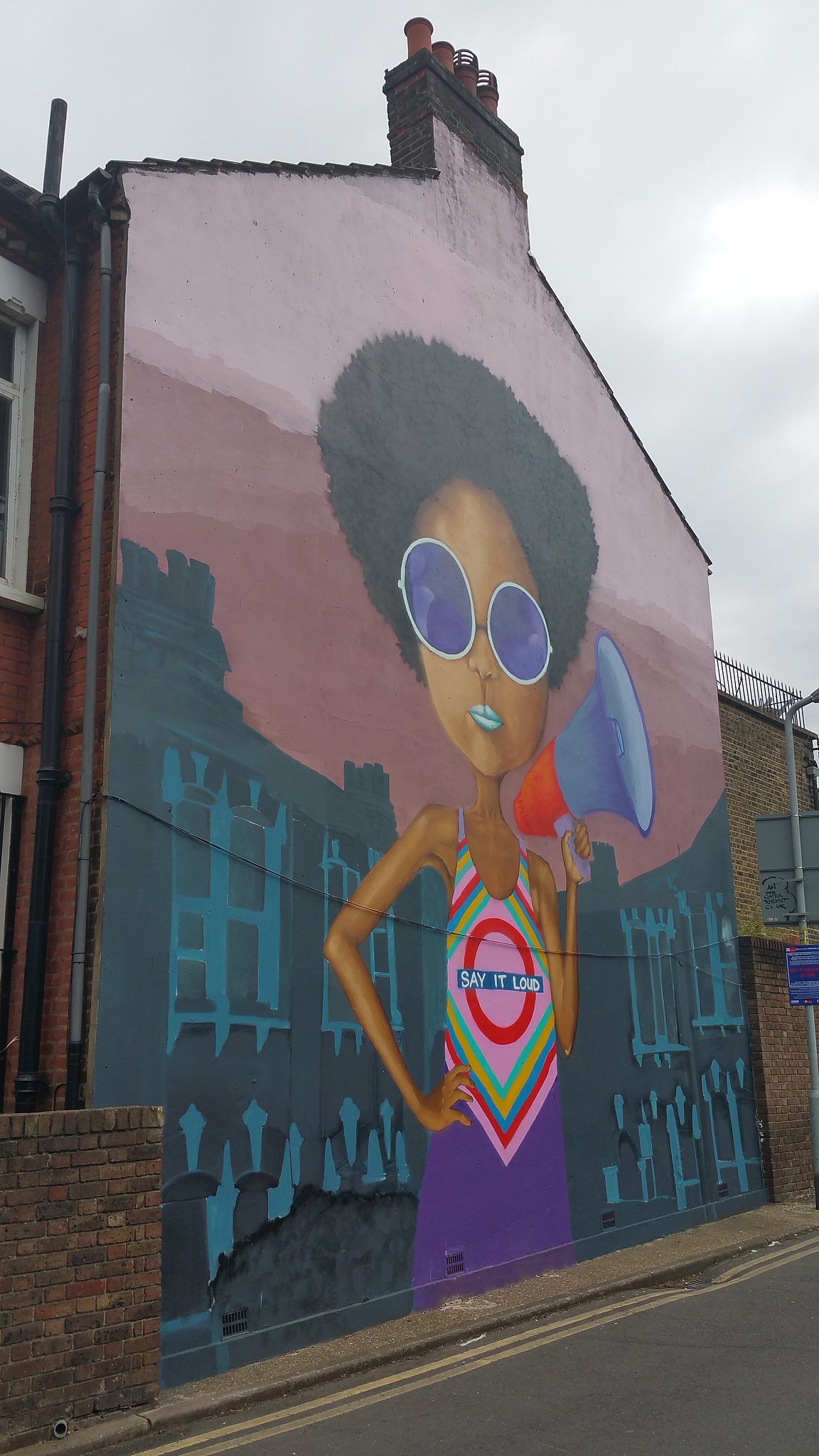Saluting our sisters: moving towards the present day

Looking back over the Black History Month blog posts from last year, you will find descriptions of the many powerful Black women who successfully overcame the frightening violence and persecution that followed the uptick in racism and fearmongering in the 1950s following the post-war economic collapse. Figures such as Mavis Best who changed the law from a tool of persecution to a standard for equality that gave police sweeping powers of arrest without cause and allowed them to intimidate Black people with the threat of arbitrary arrest and instigated the Race Relations Act of 1965 that replaced colonial laws and established equal rights in law for everyone, regardless of their ethnicity. These figures are so important that I wanted to revisit them again briefly here.
Kath Locke (1928 – 1992)
An active member of Manchester’s Moss Side community politics, Locke campaigned for Black history to be taught in schools and for an end to educational materials that stereotyped and disenfranchised Black people, as well as striking out against the poll tax and other measures that disproportionately impacted poorer people. The women’s self-help organisation she co-founded led a variety of community projects out of the Moss Side People’s Centre, ranging from health support, youth engagement and supplementary education.
Gerlin Bean (1940 – )
One of the first political activists working for women’s equality within the Black liberation movement, Bean launched the Black Women’s Action Committee and opened the Black Women’s Centre in Brixton, which served as both a supportive and safe space for women.
Olive Morris (1952 – 1979)
Morris co-founded the Brixton Black Women’s Group in 1973, campaigning fiercely for Black and Women‘s rights from age 17 until her early death from cancer. She was instrumental in organising the Black Women’s Movement, the Organisation of Women of African and Asian Descent in London, and later at university the Manchester Black Women’s Co-operative.
Morris leveraged squatting as a means to enable the Brixton Black Women’s Group to remain autonomous from the broader women’s liberal on movement in England. Morris’ squat at 121 Railton Road became an anarchist self-managed social centre known as the 121 Centre, which existed until 1999. She also co-founded the Organisation of Women of Asian and African Descent, travelling and working across the world to combat racial, class and sexual oppression up until her death from cancer in 1979.
Mavis Best (1939 – 2022)
Working with other women from Lewisham, Mavis Best helped repeal the ‘Sus law’, the sweeping powers granted to police under the 1824 Vagrancy Act to stop and search “suspected persons” that were being used to intimidate, harass and arbitrarily assault and detain young Black people and working with other Black women to demand the release of children from police stations.
Jocelyn Barrow (1929 – 2020)
A founding member of the Campaign Against Racial Discrimination (CARD) and a leading member of the North London West Indian Association (NLWIA), Jocelyn Barrow pioneered multi-cultural education, highlighting the limitations of a one-size-fits-all education system, raising awareness of the subtly different educational needs of different ethnic groups. She became the first Black woman Governor of the BBC in the 1980s and founded and served as deputy chair for the Broadcasting Standards Council, the precursor to Ofcom. She was also involved in establishing and overseeing museums and was the first patron of the Black Cultural Archives. She chaired the 2005 Mayor’s Commission on African and Asian Heritage that produced the report Delivering Shared Heritage which set out a code of values for delivering inclusive heritage management practices. She went on to help establish the North Atlantic Slavery Gallery and the Merseyside Maritime Museum in Liverpool, became a trustee of the National Museums and Galleries on Merseyside and a Governor of the British Film Institute, as well as the first patron of the Black Cultural Archives. She received an OBE in 1972, was made the first Black Dame in 1992 in recognition of her broadcasting and contributions to the European Union while acting as the UK member of the Economic and Social Committee. She also received honorary doctorates from the University of Greenwich in 1993 and the University of York in 2007.
Why no photos?
You might be wondering why I am talking about so many people without sharing photos of them. Surely it matters to remember what they looked like? What struck me last year when I was compiling a selective history of Black British heroes for the last Black History Month was how many of the images of poor Black women are the property of rich white men. There are very few public domain photographs available of Black freedom fighters – they have typically been taken by journalists and become the property of media companies or they enter the historical record as part of large image collections from which they can be used only by paying an expensive license fee.
Image credit:
“Olive Morris Mural” by Breeze Yoko.jpg, reproduced with permission under a Creative Commons Attribution 2.0 licence.




Leave a Comment (note: all comments are moderated)